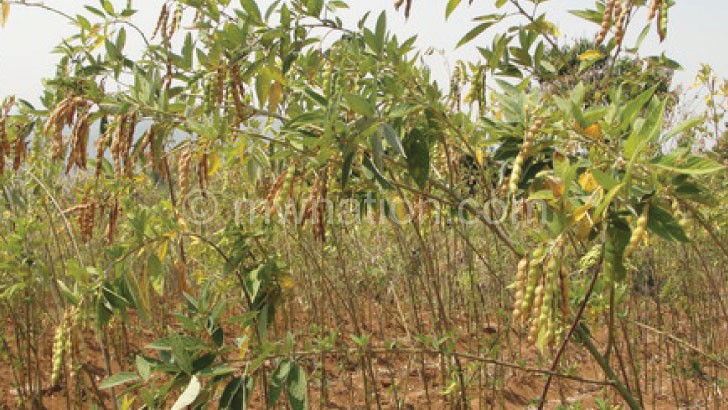Culture frustrates pigeon peas project in Mzimba
Research by the Lilongwe University of Agriculture and Natural Resources (Luanar) has established that cultural practices are frustrating the adoption and growth of pigeon peas (nandolo) in Mzimba District.
The research, funded by governments of Malawi and Norway under the Capacity Building for Managing Climate Change (Cabmacc) Programme, is being implemented in Mpherembe Extension Planning Area (EPA) in Mzimba.
The aim of the research, led by Professor Weston Mwase and Dr Steve Makungwa from Luanar and Professor Trod Eid from the University of Life Science (NMBU) in Norway, is to improve resilience and livelihoods of farmers through improved soil fertility and crop yields in the area.

In an interview yesterday, Mwase said although the project has improved maize yields among compliant farmers, some are reluctant to grow pigeon peas as they regard it as animal feed.
“If you talk to farmers, they will tell you that they neither grow nor eat nyamundolo [pigeon peas as they call it in Mpherembe] because it is food for farm animals, not human beings,” he said.
Mwase contended that the improved maize yields are not due to nitrogen fixed by pigeon peas, but improved farming methods.
“Pigeon peas fix nitrogen in the soil which is an important nutrient for plant growth, but it is too early to attribute the improved yields to nyamundolo. The effect of nitrogen fixed by pigeon peas will be felt next year.
“So, this year, farmers experienced increased maize yields purely on account of improved farming practices they adopted,” he said.
Mzimba is predominantly a tobacco growing district which Mwase said affected the project in one way or another.
“Most people do not believe they can make enough money from pigeon peas but from tobacco,” he said.
Pigeon peas is one of the crops government encourages farmers to grow to generate foreign exchange.
Cabmacc is a five-year government programme aimed at encouraging innovative responses to climate change.





